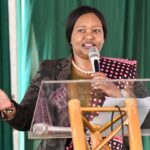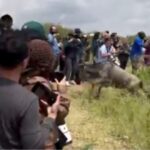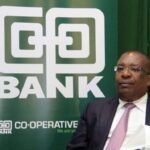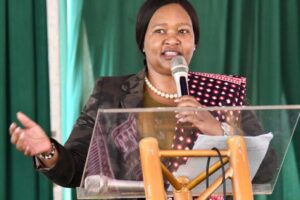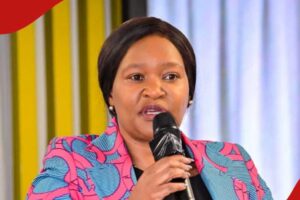[ad_1]
Top economic advisors of retired President Kibaki have agreed on a new economic model that the think tanks believe will endear Deputy President William Ruto to the electorate.
Dubbed the Bottom Up Economic Model, the plan seeks to board Kenyans at the bottom of the pyramid and those pushed to the fringes “onto an economic train that provide upward mobility for everyone.”
In a statement released after the model was adopted, Ruto said the trickle down model denies millions of citizens the opportunity to realise their full potential.
“This model has failed to create enough jobs, expand opportunities and bring prosperity. Instead, it has fostered a hostile environment that has made it difficult for enterprise, trade, business, creativity and initiative to thrive,” Ruto explained.
He added that, the number of excluded Kenyans is about 10 million or about half of the country’s workforce. “A country that leaves half its people behind cannot go far,” he stated.
Ruto, economist David Ndii and a team of 11 Mt Kenya leaders retreated to Masaai Mara from April 30 to May 2, 2021.
Others were MPs Ndindi Nyoro (Kiharu), Alice Wahome (Kandara), Kimani Ichung’wa (Kikuyu), Isaac Mwaura (Nominated), John Gakuya (Embakasi North), Purity Ngirici (Kirinyaga county), Cicily Mbarire (Nominated) and John Kiarie (Dagoretti South).
The DP has also been working with former Central Bank of Kenya Governor Njuguna Ndung’u to develop the model.
Njuguna is an economist, as well as economic researcher who served as CBK’s governor for two consecutive four-year terms, from March 2007 until March 2015.
Ruto announced that they had embarked on a series of engagements with ordinary Kenyans that will culminate in the development of a national charter.
A statement released by Ruto at the end of the two-day meeting said the engagement will progressively cover all counties, all regions and all sectors of the economy.
“We have planned similar engagements and consultations with Western, Northern, the Coast, Nairobi, Eastern, Nyanza and Rift Valley regions,” it said.
Ruto assured that process will be comprehensive, people-centered, time-sensitive and innovative.
“We will tap into the huge reservoir of knowledge, talent and expertise available to inform our policy process with knowledge that is grounded in our economic reality,” he stated.
Participants of the first meeting structured the framework for these consultations.
“This conversation will culminate in a national economic charter that embodies aspirations of, and our commitments to Kenyans at the grassroots and especially the hustlers at the fringes of our economic life,” Ruto added.
To ensure that an all-inclusive conversation takes root, the meeting agreed on a framework of engagement beginning at the grassroots with farmers, entrepreneurs, traders, cooperatives and business associations encompassing the key agricultural sectors in particular tea, coffee, dairy, fresh produce, rice and miraa.
Scholars, professionals, subject matter experts, business and community leaders will be brought on board to facilitate the engagements.
The meeting further resolved to make the most important conversations to be those touching on empowerment of small businesses, increasing farmers’ earnings and creating an enabling environment that rewards hard work, nurtures creativity and promotes initiative.
“We have had a robust, extensive, frank and candid engagement on the single most important destiny-changing discussion in our country’s economic history,” the DP said.
Ruto added that it is the collective and patriotic duty of citizens in their various capacities to work together and fashion the best possible future for the country.
He said leaders must engineer a fundamental paradigm shift from the perennial politics of personalities, positions and power to a candid, open and frank engagement with the people on the economy, their aspirations and their future.
“Over the years, political positions have been created, power has been shared this way and that way, leaders’ interests have been catered for but this has not improved the lot of the overwhelming majority of Kenyans. The solution is definitely elsewhere: A new political conversation about ordinary people, not leaders and a new bottom-up economic model not trickle down economics,” he stated.
He added that leaders must acknowledge “both the ethnic political model-it is our turn-and its counterpart trickle down economics” continue to impede the country’s full political, economic and social development potential.
-Edited by SKanyara
[ad_2]
Source link
